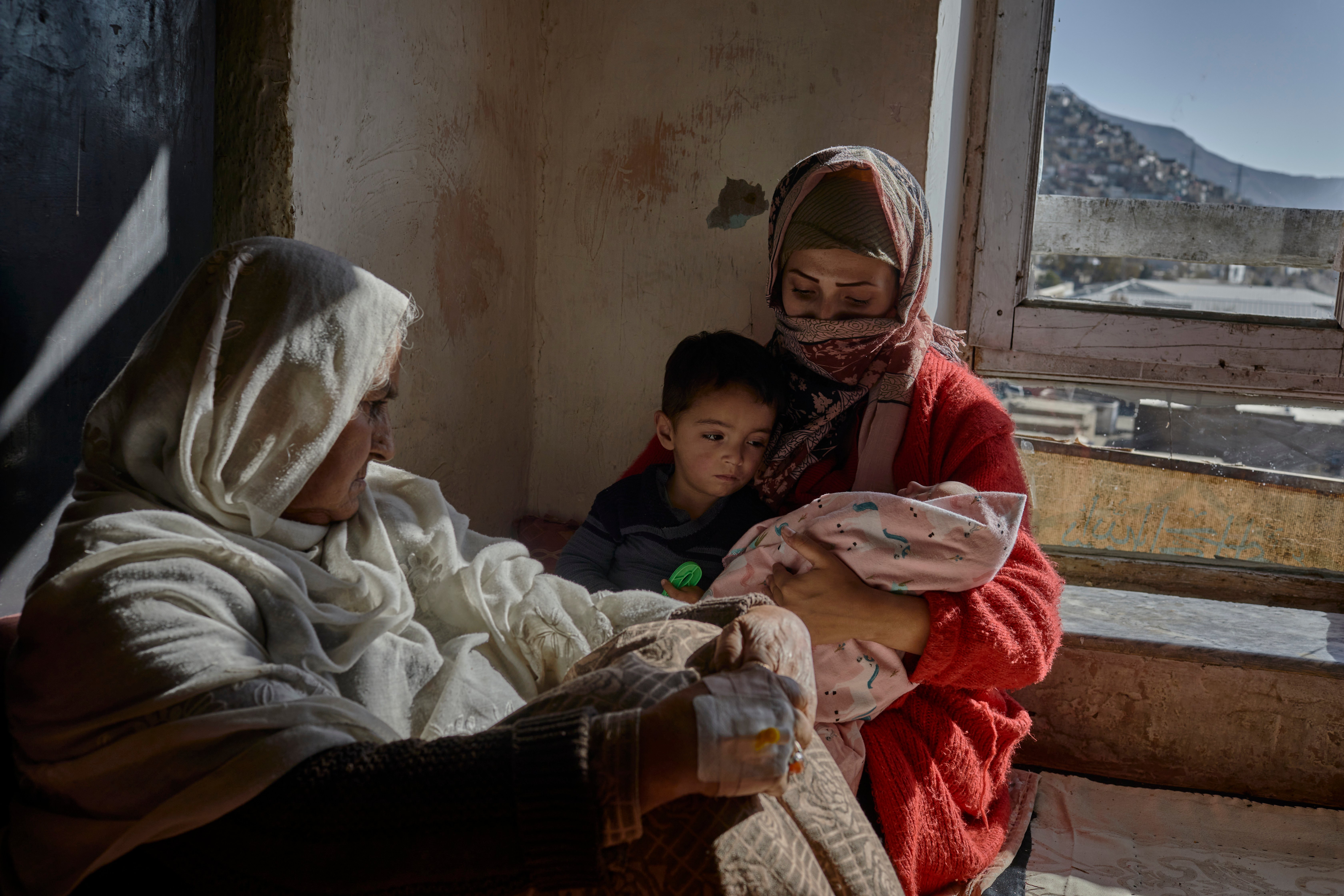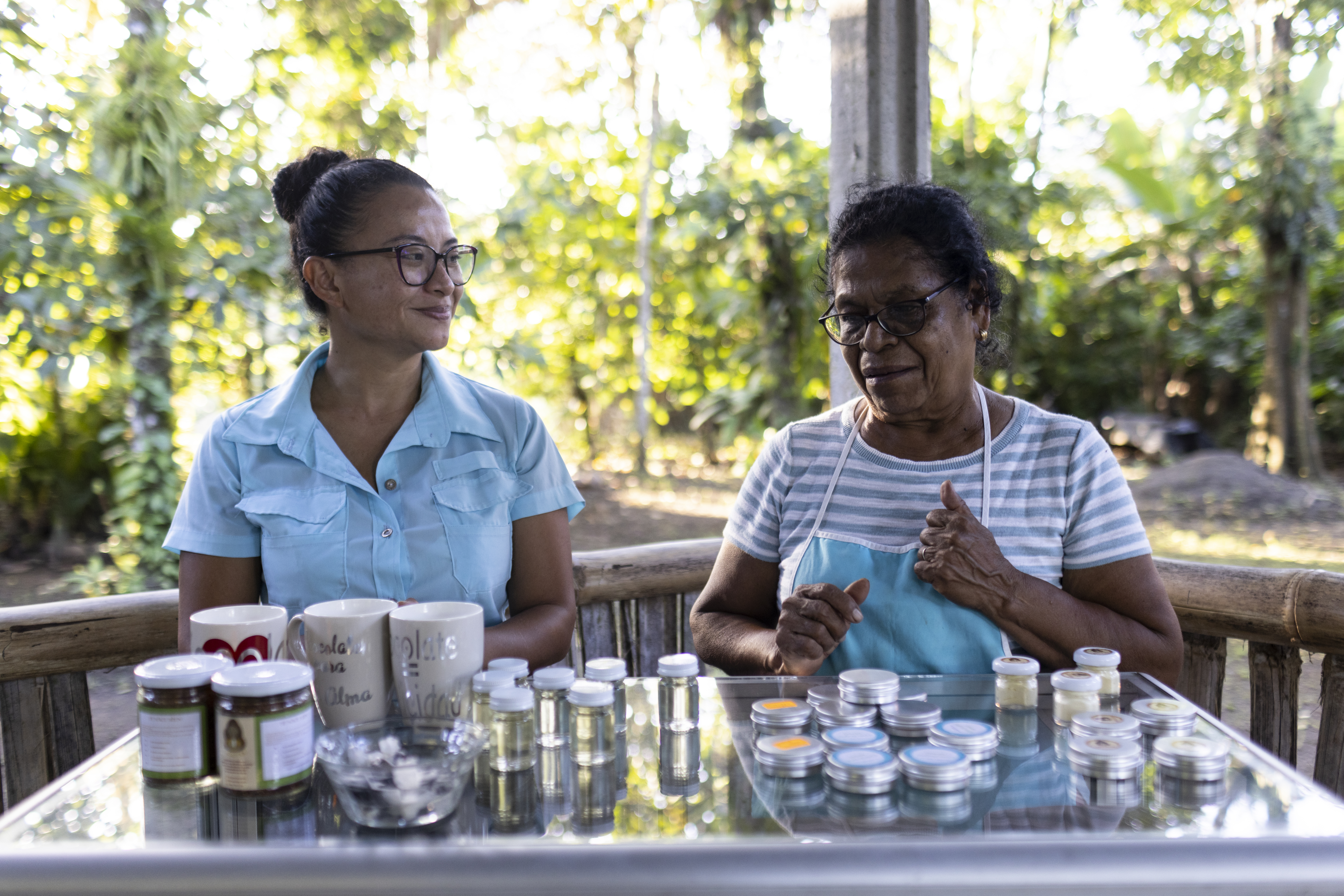Religion and community powerful tools in addressing gender issues among Afghan returnees
Religion and community powerful tools in addressing gender issues among Afghan returnees

KUZ KUNAR, Afghanistan, April 21 (UNHCR) - "There are four types of women," says the elderly man, stroking his beard as though for dramatic effect: "The polite, the dog, the donkey and the cat."
The polite is straightforward, he explained, she is a woman who is obedient and respectful of her father-in-law. The other descriptions are less complimentary. They range from argumentative, to lazy, to a woman who is a gossip.
The 50 or so other men who have gathered at the meeting in Kuz Kunar in eastern Afghanistan's Nangarhar province let the man expound his bizarre theory, as they have for other contributors, before the leader of the discussion stands up to return proceedings to their original topic.
The meeting, part of the UN refugee agency's programme to combat sexual and gender-based violence among returnee communities in Afghanistan, was being conducted by an Afghan organization supported by UNHCR.
Over the course of the day-long session, the men sat in the shade of trees drinking green tea and discussing sensitive subjects relating to the treatment of women in their communities. From within a nearby walled compound could be heard the animated sounds of the parallel women's meeting.
The trainer began the day by raising the topic of exchange marriages. This occurs when two families agree to swap their daughters as brides for their sons. The women have no say in the trade and should the groom of one family mistreat his wife, the other woman is punished and frequently beaten by her in-laws in return.
"What can we do to end these practices?" the trainer asks the group.
"We are a Muslim society," says a man wearing a pakool, the traditional flat woollen cap common among Afghanistan's Pashtuns. "If people are truly aware of Islam, these problems will disappear."
The male and female trainers who lead these meetings across Nangarhar province ensure that Islam is at the centre of the discussions, pointing out that many of the traditional practices and attitudes towards women are expressly forbidden in the Koran.
Among the topics raised at this session was that of demanding a cash payment for a daughter from a potential groom's family. The payments often leave families heavily indebted and they, in turn, look to recoup some of the cost by exacting a high price for their own daughters. Women are also regularly used to resolve conflicts between families, with daughters being given as brides to a male member of the wronged family.
This was the first time Abdul Qadus had attended such a discussion. A father of three girls and headmaster at a girl's school, he believes it is important that these once-taboo topics be aired publicly.
"People know these things are against Islam," he says. "But these types of gatherings allow us to share our views and this creates more pressure for change within the community."
Ghulam Ishaq is a trainer with SHE, the Society for Health and Education, which is being funded by UNHCR to run the gender awareness workshops. He acknowledges that one discussion group is not going to immediately change centuries of tradition. But he believes that by supporting what he is promoting with Islamic teachings and by getting whole communities involved, the likelihood of success is greatly improved.
"We encourage the community to identify the problems and to come up with their own solutions," he says. With UNHCR support, a social worker is then able to provide follow-up monitoring and advice in those areas where the sessions have been held.
Inside the mud walls of the women's meeting, where only a female UNHCR staff member was allowed to enter, the group is equally quick to condemn practices such as exchange marriages, but many believe that ending these traditions is out of their hands.

Shakila was abandoned by her husband when he took a second, younger wife. She is still married and continues to live with her in-laws. She is happy to have attended the meeting, which, as she points out, would have been unthinkable under the Taliban. But she has misgivings about the future. "It is good to get together and talk about these issues," she says. "But women don't make any decisions in this community, so the real need is to educate the men."
As she prepares to leave, Nooria offers a more optimistic assessment. "These talks help improve women's knowledge, and they can see that they, too, have rights."
By Tim Irwin
UNHCR Kabul









